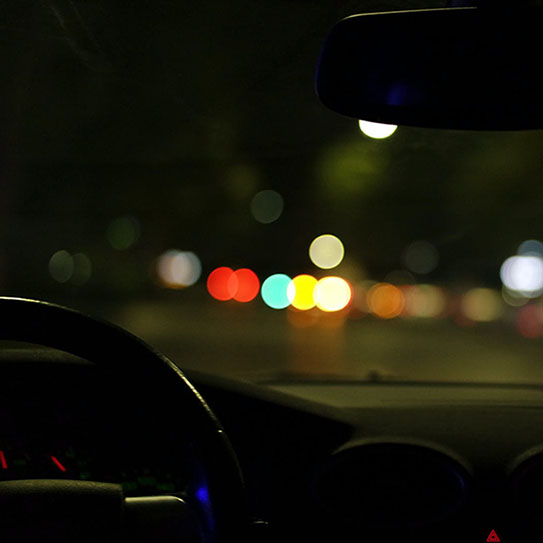As winter rolls in, the days get shorter, making night driving harder to avoid.
For those of us without perfect eyesight, this annual adjustment can be stressful and potentially dangerous if we neglect the specific challenges posed by driving in the dark. Fortunately, a few simple precautions can significantly impact our safety on the road, benefiting both ourselves and fellow travelers.
The Dangers of Night Driving
Driving at night presents unique challenges, altering the way the road appears compared to daylight conditions. Even individuals with perfect eyesight and exceptional night vision may struggle to discern upcoming curves and obstacles amidst deep shadows and the glare of oncoming headlights. To a certain point, we can adapt to changes in our eyesight, but we must also be able to recognize that it may be safer for the individual and everyone else on the road to avoid driving after dark entirely.
Night Driving: A Challenge with Age
As we age, our night vision tends to decline. The gradual loss of rods in our eyes (the light-sensitive cells responsible for distinguishing between light and dark), coupled with the stiffening and clouding of lenses, makes focusing harder and increases sensitivity to glare. This cumulative effect challenges our ability to drive safely at night. These age-related changes require a proactive approach to safety concerns.
Be Mindful of Your Changing Eyesight
Early signs of eye problems that may compromise safety on nighttime roads include cloudy or blurry vision, increased sensitivity to glare, halo effects around lights, and eye fatigue. If you’re experiencing these symptoms, we urge you to schedule an eye exam. Identifying and addressing underlying issues, whether through corrective measures or adjusting glasses prescriptions, can enhance your confidence and safety on the road.
Night Driving Aids
Mild to moderate night driving difficulties can be alleviated with various aids and solutions. Consider wearing night driving glasses, ensuring proper rest before hitting the road, and incorporating eye-healthy foods like carrots, sweet potatoes, and spinach into your diet. Simple practices such as keeping windshields, windows, and headlights clean can significantly enhance visibility during nighttime travel.
Knowing When to Stay Off the Roads at Night
While it can be inconvenient to close the door on night driving for good, safety needs to come first. Recognizing this threshold is crucial, and choosing to stay off the roads at night may be the most prudent decision.
Make Use of Your Best Resource: The Eye Doctor
If night driving has become increasingly challenging, don’t delay scheduling your next eye exam. Our team is here to assist you in identifying the cause and finding effective solutions. Whether you have questions about night driving or other vision-related concerns, we are committed to providing personalized care.
We eagerly anticipate your next visit to ensure your eyesight is in optimal condition for the winter nights and beyond!
Top image used under CC0 Public Domain license. Image cropped and modified from original.

